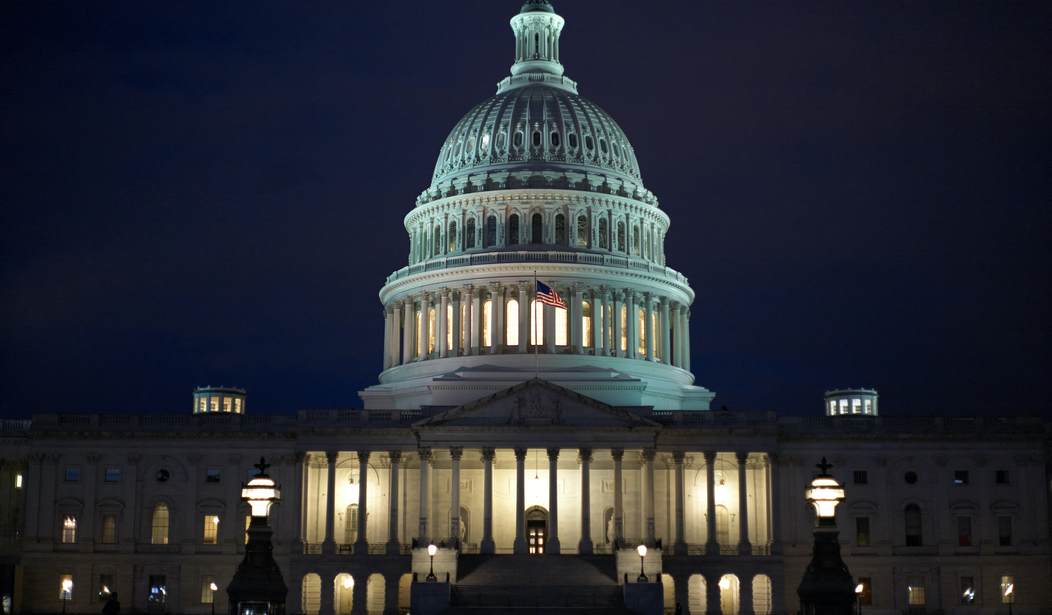Republicans always believe the polls are slanted against them. That belief has sometimes caused them to misread big political races. In 2012, for example, a significant number of Republicans convinced themselves that GOP presidential nominee Mitt Romney was actually going to defeat incumbent Democratic President Barack Obama. There was a lot of talk about "unskewing" the polls. Then Obama beat Romney handily.
But there have also been some egregious examples of polling bias, or at least polling mistakes, in the years since Donald Trump entered national politics. On many occasions, pollsters have seemed unable to measure Trump's appeal, especially in state-level polls. In the 2016 Trump vs. Hillary Clinton race, the polls showed Clinton winning in three states critical to Trump's victory -- Wisconsin, Michigan and Pennsylvania. In Wisconsin, the RealClearPolitics average of polls on Election Day showed Clinton winning by 6.5 points; in fact, Trump won by seven-tenths of a point. In Michigan, the polls had Clinton up by 3.6 points; Trump won by three-tenths of a point. And in Pennsylvania, the polls showed Clinton ahead by 2.1 points; Trump won by seven-tenths of a point.
In the 2020 Trump-Joe Biden race, even when the polls got the winner right, they were sometimes off by a lot. In Wisconsin, for example, the final RealClearPolitics average of polls showed Biden winning by 6.7 points; in fact, Biden won by seven-tenths of a point. And no Republican will forget the Washington Post poll, published in late October, that showed Biden 17 points ahead of Trump. It was crazy -- an embarrassment pollsters should not soon forget.
So what does all that mean for today? The midterm elections are one month away, and polls are everywhere. The question is: Do the polls have the same old problems?
We don't know. But there are reasons to suspect problems persist. And now RealClearPolitics has begun an exercise in comparing today's midterm polls to the known errors of polls from 2016, 2018 and 2020. If it turns out the mistakes are happening again, the election results could be quite different from what pundits are counting on today.
Recommended
RCP took each contested midterm state and looked at the polling average today. Then they averaged the known polling error from 2016, 2018 and 2020 -- two presidential elections and one midterm, all with Trump involved. Then they took that figure -- the polling error -- and applied it to today's poll, just to see what things look like.
Start with the Pennsylvania Senate race. Today's average of polls shows Democratic candidate John Fetterman ahead of Republican Mehmet Oz by 3.7 points. Then look at past Pennsylvania polls. At this point in each campaign, 28 days before Election Day, the 2016 polls showed Hillary Clinton over Donald Trump by 8.6 points; the 2018 midterm polls showed Democratic Sen. Bob Casey up by 16.0 points; and the 2020 polls showed Biden over Trump by 6.5 points. When compared with the final election results in those years, the polls at this point in the race underestimated Republican performance by 5.9 percentage points.
So is Oz really 3.7 points behind Fetterman? Maybe. But if the polls today are misreading the electorate in a way similar to past elections, Oz could actually be ahead by 2.2 points. Again, that is at this particular moment in the race, not on Election Day. But the polls might have the horse race wrong.
Other races might be closer than they seem. In New Hampshire, Democratic Sen. Maggie Hassan leads Republican challenger Don Bolduc by 5.3 points in the RCP average. But factor in the polls' errors from past years, and Hassan's lead is nine-tenths of a point -- a far more competitive race. In North Carolina, the RCP average shows Republican Ted Budd leading Democrat Cheri Beasley by 1.5 points. Factor in the old mistakes, and Budd's lead is 6.0 points.
Those are big differences. But there is one closely watched race where the polls, at least by this measure, appear to be right on the money. In Georgia, Democratic Sen. Raphael Warnock leads Republican Herschel Walker by 3.8 points. A look at the historical polls from 2016, 2018 and 2020 shows no difference from the final result those years. Therefore, by this measure at least, Warnock's 3.8-point lead over Walker is real. Remember, that is just a description of this point in the race, 28 days before Election Day, but Warnock's lead is solid.
And in one race, the earlier polls actually underestimated Democratic performance. In Nevada today, Republican Adam Laxalt is leading Democratic Sen. Catherine Cortez Masto by 2.1 points. But past polls suggest that might be an overstatement, and Laxalt's lead is actually 1.1 points. He is still ahead, but it's a very close race.
What does all this tell us? In most of the races, even with historical error factored in, the Senate seat in question will not change parties. RealClearPolitics predicts Republicans will not lose any of the seats they already hold and will pick up seats in Arizona and Nevada, and thus win control of the Senate. Maybe so. A more cautious prediction would be one GOP pickup, the one in Nevada. And an even more cautious prediction would be no pickups at all, and a continued 50-50 tie, with functional Democratic control, in the Senate.
But we do know state polls have been seriously wrong in the past. Serious people are trying to understand how that happened and what it might mean for today's midterm contests. And right now, it appears the picture could be somewhat better for Republicans than the polls say.
This content originally appeared on the Washington Examiner at washingtonexaminer.com/opinion/sounding-the-alarm-over-joe-biden.
(Byron York is chief political correspondent for The Washington Examiner. For a deeper dive into many of the topics Byron covers, listen to his podcast, The Byron York Show, available on the Ricochet Audio Network at ricochet.com/series/byron-york-show and everywhere else podcasts are found.)

























Join the conversation as a VIP Member